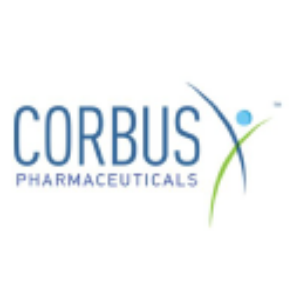Corbus Pharmaceuticals Announces Completion of Enrollment in NIH-Sponsored Phase 2 Study of Lenabasum for Treatment of Systemic Lupus Erythematosus (SLE)
Rhea-AI Summary
Corbus Pharmaceuticals Holdings announced the enrollment of the last participant in a Phase 2 study of lenabasum for treating systemic lupus erythematosus (SLE). This exploratory trial involves 101 participants and evaluates lenabasum's safety and efficacy alongside standard treatments over 16 weeks. The study is the first to target the cannabinoid receptor type 2 in SLE, with primary results expected in the second half of 2021. Lenabasum aims to provide an alternative to immunosuppressive treatments for inflammatory diseases.
Positive
- Enrollment of 101 participants completed for Phase 2 study of lenabasum.
- Study investigates lenabasum's efficacy and safety specifically in SLE.
- First randomized, double-blind, placebo-controlled trial targeting cannabinoid receptor type 2 in SLE.
- Topline results anticipated in the second half of 2021.
Negative
- None.
News Market Reaction 1 Alert
On the day this news was published, CRBP gained 3.66%, reflecting a moderate positive market reaction.
Data tracked by StockTitan Argus on the day of publication.
- First study to explore potential benefit of a cannabinoid receptor type 2 agonist in SLE
- Study sponsored and funded by the Nastional Institute of Allergy and Infectious Diseases through the Autoimmunity Centers of Excellence (ACE) Cooperative Network
- Topline data expected in the second half of 2021
- SLE is a serious autoimmune disease with multi-organ involvement and affects more than 200,000 Americans
Norwood, MA, April 20, 2021 (GLOBE NEWSWIRE) -- Corbus Pharmaceuticals Holdings, Inc. (NASDAQ: CRBP) (“Corbus” or the “Company”), a clinical-stage drug development company pioneering transformative medicines that target the endocannabinoid system, today announced that the last participant was enrolled in a Phase 2 study of lenabasum for the treatment of systemic lupus erythematosus (SLE).
The 16-week, U.S., multi-center, first-in-patient, exploratory clinical trial enrolled 101 participants to evaluate the safety, efficacy, and tolerability of lenabasum in adults with SLE who are receiving standard treatments, including background immunosuppressive therapies. This study is the first randomized, double-blind, placebo-controlled study targeting the potential role of the cannabinoid receptor type 2 in SLE. Patients in the study are randomized 1:1:1:1 to either receive lenabasum 20 mg twice daily, lenabasum 20 mg once daily, lenabasum 5 mg twice daily, or placebo.
The primary efficacy endpoint is change from baseline in the 7-day average of the maximum daily Numerical Rating Scale-Pain score at Week 12. Secondary efficacy assessments include other evaluations of musculoskeletal pain and disease activity, SLE Responder Index, SELENA-SLEDAI score, BILAG-2004 score, Physician Global Assessment, Lupus Activity Patient Global Assessment, and PROMISE-29 scores. Various biomarkers will also be measured.
The clinical trial (ClinicalTrials.gov identifier: NCT03093402) is led by principal investigator, Meggan Mackay, M.D., professor at the Feinstein Institutes for Medical Research, and is sponsored and funded (UM1AI110494) by the National Institute of Allergy and Infectious Diseases, part of the National Institutes of Health (NIH). Topline results from the study are expected in the second half of 2021.
About Lenabasum
Lenabasum is a novel, oral, small molecule designed to provide an alternative to immunosuppressive treatments for inflammatory or fibrotic diseases. Lenabasum binds to and activates the cannabinoid receptor type 2 (CB2), which is preferentially expressed on activated immune cells, to resolve inflammation and limit fibrosis. Data from animal models and human clinical studies suggest that lenabasum can reduce expression of genes and proteins involved in inflammation and fibrosis. In clinical testing to date, lenabasum has acceptable safety and tolerability profiles without evidence of immunosuppression.
About Systemic Lupus Erythematosus
Systemic lupus erythematosus (SLE), a form of lupus, is a systemic autoimmune disease affecting more than 200,000 Americans.1,2 SLE occurs when the immune system is activated and attacks different parts of the body, leading to widespread inflammation that can affect many different body parts, including a person's joints, skin, kidneys, blood cells, brain, heart, and lungs.2,3
Each person with SLE has slightly different symptoms that can range from mild to severe, depending on which body parts are affected by the disease.2 Symptoms may include arthritis, extreme fatigue, red rashes, hair loss, sensitivity to the sun, mouth sores, and pale or purple fingers and toes when exposed to cold or stress.2
Although SLE is most often a disease that one can live with for decades, it is ranked among the top 20 leading causes of death in young women.4 Medicines specifically approved by the FDA for treatment of SLE are aspirin, hydroxychloroquine, corticosteroids (for example, prednisone), a repository corticotropin injection, and the immunosuppressive drug belimumab.2 Other drugs that are not FDA-approved for SLE but are often prescribed by physicians include methotrexate, mycophenolate, azathioprine and cyclophosphamide. These treatments may be associated with significant side effects, including serious infections.
About Corbus
Corbus Pharmaceuticals Holdings, Inc. is a clinical-stage company focused on the development and commercialization of novel medicines designed to target the endocannabinoid system. The Company’s lead product candidate, lenabasum, is a novel, oral, selective cannabinoid receptor type 2 (CB2) agonist designed to provide an alternative to immunosuppressive medications in the treatment of chronic inflammatory and fibrotic diseases. Lenabasum is currently being evaluated in dermatomyositis and systemic lupus erythematosus. Corbus is also developing a pipeline of other preclinical drug candidates from its endocannabinoid system platform.
Lenabasum is not approved for the treatment of any indication. For more information on Corbus’ clinical programs, please visit here.
For more information, visit http://www.corbuspharma.com/, and connect with us on Twitter, LinkedIn, and Facebook.
About the Feinstein Institutes
The Feinstein Institutes for Medical Research is the research arm of Northwell Health, the largest health care provider and private employer in New York State. Home to 50 research labs, 3,000 clinical research studies and 5,000 researchers and staff, the Feinstein Institutes raises the standard of medical innovation through its five institutes of behavioral science, bioelectronic medicine, cancer, health innovations and outcomes, and molecular medicine. We make breakthroughs in genetics, oncology, brain research, mental health, autoimmunity, and are the global scientific leader in bioelectronic medicine – a new field of science that has the potential to revolutionize medicine. For more information about how we produce knowledge to cure disease, visit http://feinstein.northwell.edu and follow us on LinkedIn.
Forward-Looking Statements
This press release contains certain forward-looking statements within the meaning of Section 27A of the Securities Act of 1933 and Section 21E of the Securities Exchange Act of 1934 and Private Securities Litigation Reform Act, as amended, including those relating to the Company’s restructuring, trial results, product development, clinical and regulatory timelines, market opportunity, competitive position, possible or assumed future results of operations, business strategies, potential growth opportunities and other statements that are predictive in nature. These forward-looking statements are based on current expectations, estimates, forecasts and projections about the industry and markets in which we operate and management’s current beliefs and assumptions.
These statements may be identified by the use of forward-looking expressions, including, but not limited to, “expect,” “anticipate,” “intend,” “plan,” “believe,” “estimate,” “potential,” “predict,” “project,” “should,” “would” and similar expressions and the negatives of those terms. These statements relate to future events or our financial performance and involve known and unknown risks, uncertainties, and other factors, including the potential impact of the recent COVID-19 pandemic and the potential impact of sustained social distancing efforts, on our operations, clinical development plans and timelines, which may cause actual results, performance or achievements to be materially different from any future results, performance or achievements expressed or implied by the forward-looking statements. Such factors include those set forth in the Company’s filings with the Securities and Exchange Commission. Prospective investors are cautioned not to place undue reliance on such forward-looking statements, which speak only as of the date of this press release. The Company undertakes no obligation to publicly update any forward-looking statement, whether as a result of new information, future events or otherwise.
Corbus Pharmaceuticals Contacts:
Ted Jenkins, Senior Director, Investor Relations and Corporate Communications
Phone: +1 (617) 415-7745
Email: ir@corbuspharma.com
Lindsey Smith, Director, Investor Relations and Corporate Communications
Phone: +1 (617) 415-7749
Email: mediainfo@corbuspharma.com
Feinstein Institutes for Medical Research Contact:
Matthew Libassi, Lead Media Relations Specialist
Phone: +1 (631) 793-5325
Email: mlibassi@northwell.edu
1. Izmirly, et al .“Prevalence of Systemic Lupus Erythematosus in the United States: Estimates from a Meta‐Analysis of the Centers for Disease Control and Prevention National Lupus Registries.” Arthritis & Rheumatology, https://doi.org/10.1002/art.41632
2. “Lupus.” Mayo Clinic, Mayo Clinic, 24 March 2021, www.mayoclinic.org/diseases-conditions/lupus/symptoms-causes/syc-20365789
3. “Systemic Lupus Erythematosus (Lupus).” National Institute of Arthritis and Musculoskeletal and Skin Diseases, U.S. Department of Health and Human Services, 24 March 2021, www.niams.nih.gov/health-topics/lupus/advanced#tab-symptoms
4. Yen, et al. “Brief Report: Lupus-An Unrecognized Leading Cause of Death in Young Females: A Population-Based Study Using Nationwide Death Certificates, 2000-2015.” Arthritis & Rheumatology, doi:10.1002/art.40512







